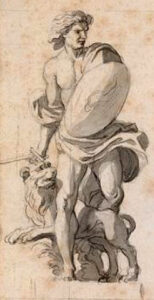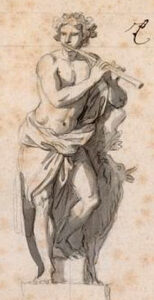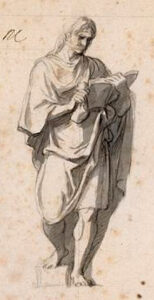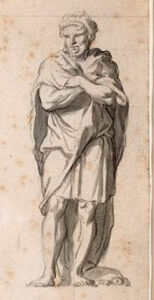Temperaments
“Now it is possible for some of the powers of the soul to be stronger in one individual than in another, because of their different bodily temperaments.”
–St. Thomas Aquinas (Summa Theologiae I-II q. 82, a. 4)
What Are the Temperaments?
For thousands of years great thinkers in the Western tradition have used the four classical temperaments to understand an individual’s basic tendencies of mood or state of mind. The Greek doctor, Hippocrates, generally acknowledged as the “Father of Medicine,” first observed these tendencies, associating them with the four “humors,” or fluid substances, in the body: phlegm, black bile, yellow bile, and blood. Both the Roman philosopher, Seneca, and the Roman doctor, Galen, adopted them as the basis of personality and associated them with the four elements of ancient physics: earth, air, fire, and water. Later thinkers, such as Thomas Aquinas, Thomas More, William Shakespeare, and many others, considered them a significant source for understanding a person’s emotional responses and dispositions, calling the temperaments choleric, melancholic, sanguine, and phlegmatic. The temperaments are by no means the ultimate key to self-knowledge, but they are a helpful starting point. Knowing your own or another’s temperament gives one helpful insight into how someone might respond to certain situations, how to help them master their emotions, and how to motivate them to virtuous action. There are other great resources to help you discover your primary and secondary temperaments.
Melancholic
Melancholics' natural reactions are slow but strong and enduring.
Phlegmatic
Phlegmatics' natural reactions are slow, weak, and short-lived.
A Note on Use
We offer three sections on each temperament: a definition and explanation; examples from Western history and literature; and advice on specific virtues to seek and vices to avoid. The definitions are based on the speed, intensity, and duration of the person’s reaction, and from those three factors the explanation describes common attributes of each temperament. The examples from history, literature, and art include both heroic and tragic figures. Tragic figures were overcome by their unmastered temperaments, whereas the heroic figures were able to master their temperaments. Because each temperament inclines individuals toward certain virtues and away from others, or toward certain vices and away from others, we identify what virtues and vices each temperament inclines toward for your own self-knowledge and plan for personal growth. Lastly, the examination of temperament, also based on the speed, intensity, and duration of the emotional reaction, seeks to increase one’s temperamental self-knowledge, and help one to master one’s temperament.
Quotations on the Temperaments
Health consists in a certain balance of humors ordered to the nature of the animal, which is called healthy.
As regards the body and the powers associated with the body, a man can be what he is like naturally insofar as he has a certain temperament (complexio) or disposition because of the influence of corporeal causes which cannot affect the intellective part of the soul, since that part of the soul is not the actuality of the body. So, then, given what each man is like according to his corporeal makeup, the end will strike him in a certain way, since a man is inclined by this sort of disposition to choose something or to reject it. However, inclinations of this sort are subject to the judgment of reason, which... the lower appetite obeys.
Antony: Forsooth, Cousin, I suppose many of them are in this case. The devil, as I said before, seeketh his occasions; for as Saint Peter saith, Adversarius vester diabolus quasi leo rugiens circuit quaerens quemdevoret (“Your adversary the devil as a roaring lion goeth about, seeking whom he may devour”). He marketh well therefore the state and condition that every man standeth in, not only concerning these outward things—lands, possessions, goods, authority, fame, favor, or hatred of the world—but also men’s complexions within them: health or sickness, good humors or bad, by which they be lighthearted or lumpish, strong-hearted or faint and feeble of spirit, bold and hardy or timorous and fearful of courage. And after, as these things minister him matter of temptation, so useth he himself in the manner of his temptation.
The Greeks gave choler its name because it ends in the space of a day; hence it is called ‘cholera,’ that is, ‘little bile,’ being an effusion of bile – for the Greeks call bile χολη. 5. Black bile (melancholia) is so called because it is a large amount of bile mixed with the dregs of black blood, for in Greek black is μελας and bile is χολη. 6. Blood (sanguis) is so called in Latin because it is sweet (suavis); hence people who are dominated by blood are sweet-tempered and pleasant. 7. They gave phlegm its name because it is cold, for the Greeks call coldness φλεϒμονη. Healthy people are governed by these four humors, and feeble people are afflicted as a result of them, for when they increase beyond their natural course they cause sickness.




